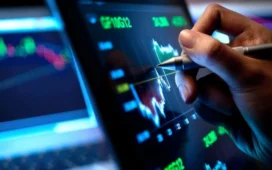Commodities are fundamental building blocks of the global economy, serving as raw materials or primary agricultural products that are interchangeable with other goods of the same type. Think of them as the basic ingredients used to create a vast array of goods and services we use daily. From the energy that powers our homes to the food we eat and the metals used in our electronics, commodities play a crucial role in shaping our lives. Common examples include gold, crude oil, natural gas, wheat, coffee, corn, and soybeans. These raw materials are essential inputs for numerous industries, making their price fluctuations a significant factor in global economic activity. To participate in commodity futures trading, you’ll typically need a demat and trading account with a brokerage that offers access to commodity markets.
Types of Commodities:
Commodities can be broadly categorized into two main groups: hard commodities and soft commodities.
- Hard Commodities: These are natural resources that are extracted or mined from the earth. They include precious metals like gold, silver, and platinum, as well as energy resources like crude oil, natural gas, and coal. Hard commodities are often used in manufacturing, construction, and as a store of value. Their prices are often influenced by geopolitical events, supply and demand dynamics, and technological advancements.
- Soft Commodities: These are agricultural products or livestock. They include crops like wheat, corn, soybeans, coffee, sugar, and cotton, as well as livestock like cattle and hogs. Soft commodities are essential for food production and are influenced by factors like weather patterns, agricultural techniques, and global demand. Changes in weather, for example, can significantly impact crop yields and thus the prices of soft commodities.
How Commodities are Traded:
Commodities are primarily traded through three main mechanisms: futures contracts, spot markets, and commodity exchanges.
- Futures Contracts: A futures contract is a standardized agreement to buy or sell a specific quantity of a commodity at a predetermined price on a future date. These contracts are traded on exchanges and allow participants to hedge against price fluctuations or speculate on future price movements. For example, a coffee roaster might use futures contracts to lock in the price of coffee beans they will need in the future, protecting themselves from potential price increases. Conversely, a trader might speculate on the price of coffee beans rising and buy futures contracts hoping to profit from the price difference.
- Spot Markets: In spot markets, commodities are traded for immediate delivery and payment. The spot price represents the current market price of the commodity for immediate transaction. These markets are often used by businesses that need to acquire commodities for their immediate use in production or manufacturing. For example, a bakery might purchase wheat in the spot market to meet their immediate needs for bread production.
- Commodity Exchanges: Commodity exchanges are organized marketplaces where futures contracts and, sometimes, spot contracts for various commodities are traded. These exchanges provide a platform for buyers and sellers to interact and facilitate price discovery. Examples of commodity exchanges include the Chicago Mercantile Exchange (CME) in the United States, the London Metal Exchange (LME) in the United Kingdom, and the Multi Commodity Exchange (MCX) and the National Commodity and Derivatives Exchange (NCDEX) in India. These exchanges provide transparency and liquidity to the commodity markets.
Participants in Commodity Markets:
The commodity market attracts a diverse range of participants, each with their own motivations.
- Hedgers: These are producers or consumers of commodities who use the market to manage their price risk. For example, a farmer might sell futures contracts to lock in a price for their crops, protecting themselves from potential price declines. Similarly, a manufacturer might buy futures contracts to secure a supply of raw materials at a fixed price, protecting themselves from price increases.
- Speculators: Speculators are traders who aim to profit from price fluctuations. They take positions in the market based on their predictions of future price movements. Speculators add liquidity to the market and can contribute to price discovery, but they also introduce volatility.
- Arbitrageurs: Arbitrageurs seek to exploit price differences for the same commodity in different markets. They buy the commodity in the market where it is cheaper and sell it in the market where it is more expensive, profiting from the price difference. Arbitrage helps to ensure that prices are aligned across different markets.
Advantages of Commodities Trading:
Commodities trading offers several potential benefits:
- Diversification: Commodities can provide diversification to an investment portfolio, as their price movements are often uncorrelated with other asset classes like stocks and bonds.
- Inflation Hedge: Commodities can act as a hedge against inflation, as their prices tend to rise during periods of rising inflation. This is because many commodities are essential inputs for production, and their prices reflect the increasing cost of goods and services.
- High Liquidity: Major commodity markets, particularly those for actively traded futures contracts, have high liquidity, making it relatively easy to enter and exit positions.
Risks of Commodities Trading:
However, commodities trading also carries significant risks:
- Price Volatility: Commodity prices can be highly volatile due to a variety of factors, including weather patterns, geopolitical events, changes in supply and demand, and government regulations. This volatility can lead to substantial gains or losses.
- Leverage Risk: Futures trading often involves leverage, which can magnify both profits and losses. While leverage can amplify returns, it also increases the risk of significant losses if the market moves against a trader’s position.
- Market Speculation: Speculative trading, while offering the potential for high returns, also carries a high risk of loss. Accurately predicting commodity price movements is challenging, and misjudging market trends can lead to substantial financial losses.
Conclusion:
Commodities trading plays a vital role in the global financial system, providing opportunities for diversification, hedging against inflation, and price discovery. However, it is a complex and risky endeavor that requires careful consideration and thorough market knowledge. Several commodity trading platforms in Chennai, offering access to various markets. Before venturing into the commodities market, investors should educate themselves about the different types of commodities, trading mechanisms, and associated risks. Understanding one’s own risk tolerance and developing a sound trading strategy are essential for success in this dynamic and often volatile market.













